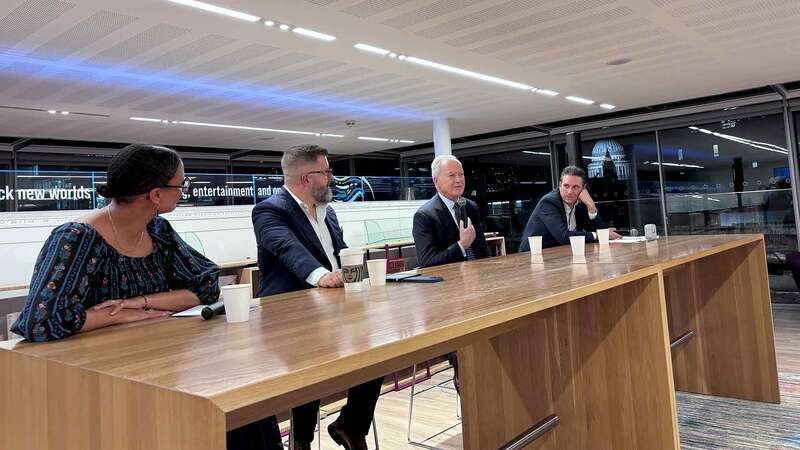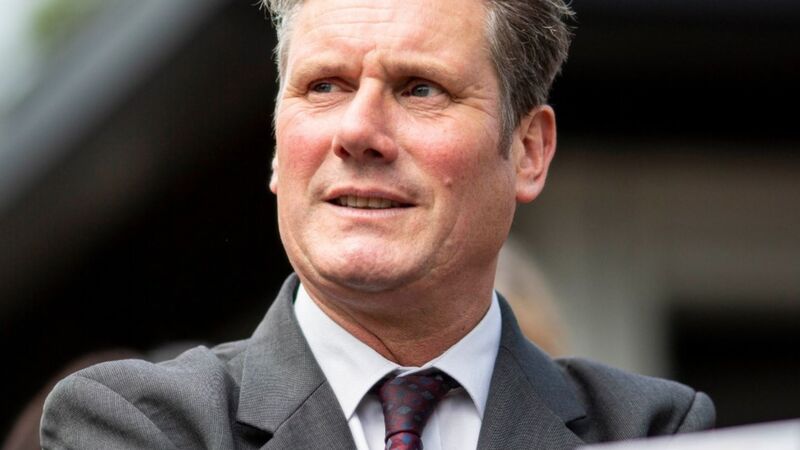You are viewing your 1 free article this month. Login to read more articles.
Industry chiefs call for calm in the wake of ‘Brexit’ vote
Industry leaders are urging a calm approach as the book trade faces a sudden and prolongued period of economic uncertainty following last week’s decision to leave the European Union. But some also expressed anger at the outcome of the referendum.
Penguin Random House UK c.e.o. Tom Weldon told The Bookseller: “There is no precedent for the position the country is in and there is still a long way to go before any clarity ensues. But what is clear at this stage is that talking down our industry and talking up worse-case scenarios will not be helpful. We must remain calm but focused on how we run our businesses. We must be our best selves for our employees, our authors, our customers and our readers.”
He added: “The one certainty is that this referendum has lifted the lid on a divided country. There has never been a greater imperative for we, as publishers, to do what we do best: help people make sense of the world.”
Bertrams m.d. Justin Adams said the exchange rate volatility was simply “a more pronounced version” of the usual flux. “We need to make sure [the UK] does not panic into a recession,” he noted. “While I personally thought we were better ‘in’ than ‘out’, the reality is that it’s going to take an extended period of time to make fundamental changes to an already fragile economy.
“The message we are giving the business is: the fundamentals of our business is buying well and selling well, providing a good service and trying to win customers. So it is business as usual, but with more urgency, pace and agility.”
At the Publishers Association, c.e.o. Stephen Lotinga looked to the potential positives. Newly returned from a Creative Industries Council meeting, he said there had been “a clear steer [that] the government wants to hear about regulations in the past—taxation issues such as VAT— where we might want to see changes.” He noted: “They are asking for views. I am anticipating a future of greater flexibility and it’s sensible for us to take advantage of that.”
Agent Diane Banks, a “Brexit” supporter, noted: “Short term, we have an incredible opportunity for export [rights and book sales] while the pound is weak, and the same circumstances open opportunities for inward investment . . . Long term, we’ll be able to negotiate trade agreements with the fastest growing territories in the world without the need for 27 other nations to agree terms.”
But there was widespread agreement that a climate of uncertainty would be a challenge for business. As Pan Macmillan m.d. Anthony Forbes Watson put it: “The most important issue is confidence. Confidence is what makes consumers spend, and uncertainty makes consumers stop spending and makes businesses invest less. That’s what we’re facing now.”
While saying it was too early to draw any conclusions, Waterstones m.d. James Daunt noted that political turmoil was “certain to be depressing sales . . . I am pessimistic, but the guardian angel of my bookselling career [J K Rowling, whose Harry Potter and The Cursed Child will be published on 31st July] may yet prove me wrong—I hope so.”
Hachette UK c.e.o. Tim Hely Hutchinson did not mince his words, commenting: “Now that it is increasingly clear to the whole public that leaving truly is a catastrophe for both the UK’s place in the world and the UK economically, the ‘Leave’ politicians are hastily denying the central promises they made to persuade people to vote ‘Leave’. The optimist in me hopes the combination of the understanding that they were deceived, together with interest in any reforming proposals put forward by the heads of European governments, may encourage more voters to call for for a second referendum, before the UK formally gives notice of leaving to the EU. That is the only substantially cheering thought I have to offer . . . and it’s probably a long shot.”
Hely Hutchinson said it was “business much as usual—but with a few new dimensions” at Hachette. “In the medium to longer term, we are going to be cautious about certain sorts of costs and new investments, as a damaged economy will not only mean weaker consumer sales but also reduced funding for schools and libraries,” he said. “If anyone says anything along the lines of, ‘It will be bumpy in the short term but beneficial in the end’, I suggest asking them to make a quantified list of such benefits. [The list] will be short.”
Others found a renewed sense of purpose. Caroline Michel, c.e.o. of literary agency PFD, said: “I have read some truly great pieces by great writers and thinkers from all over the world: just in the past couple of days, Jeanette Winterson, Simon Schama, Moises Naim, Geoffrey Robertson and many more have been trying to make sense of what is going on. We need the power of language, discussion and debate from people other than politicians to steer us through this mess. Out of it there may come some great thinking that might inform some great books about the world we are in.”
Weldon said: “At Penguin Random House, we had already started to increase our focus on the importance of inclusion and diversity, and some of the ugly post-’Brexit’ reactions that have been emerging convince me ever further that we must be tireless in championing as wide a range of voices as possible in both our workforce and in the authors and books we publish.”
Read book industry leaders' thoughts on the key issues surrounding 'Brexit' here.


















